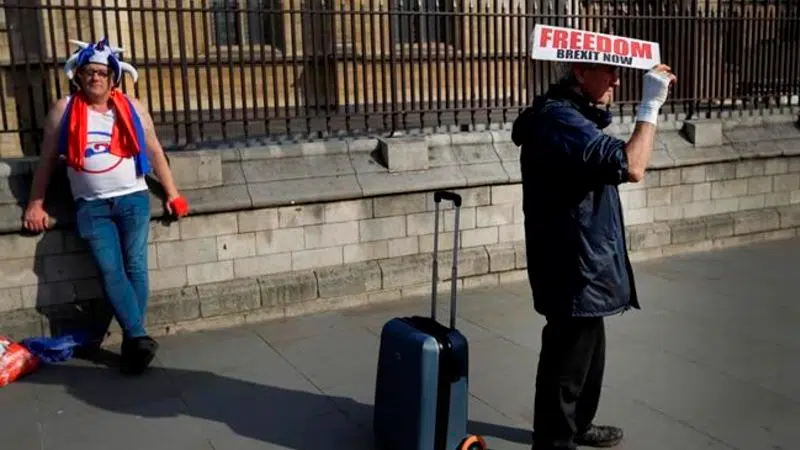
UK leader Theresa May makes final push on EU divorce deal
LONDON — British Prime Minister Theresa May made a final push Thursday to save her European Union withdrawal agreement after her promise to step down gained the deal some support but failed to win over lawmakers from Northern Ireland.
The government announced there would be a previously unscheduled Brexit debate in Parliament on Friday — but did not confirm whether it would include a new vote on May’s twice-rejected EU divorce agreement.
The EU has said the prime minister must secure approval for her deal by 11 p.m. U.K. time (2300GMT, 7 p.m. EDT) on Friday if the U.K. is to be given an automatic delay of its departure date from the bloc until May 22. Otherwise, Britain has until April 12 to announce a new plan, or leave the bloc without a deal.
